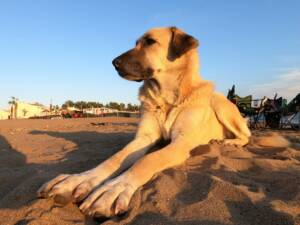
Understanding Your Dog’s Nutritional Needs
Feeding your dog the right amount of food is essential for their well-being. Just like humans, dogs require a balanced diet that includes proteins, carbohydrates, fats, vitamins, and minerals. The quantity of food they need ultimately depends on their weight and energy requirements. It’s crucial to remember that every dog is unique, so it’s important to consult with a veterinarian to determine the best feeding plan for your individual pet.
Feeding Guidelines Based on Weight in Kilograms
When it comes to feeding your dog, their weight is a key factor. However, it’s not the only consideration. The type of food, the dog’s age, and their activity level also play vital roles in determining the right portion sizes. As a general rule, a dog requires approximately 2-3% of their body weight in food per day. For example, a 20kg dog would need about 400-600 grams of food daily. Remember, these are rough estimates, and it’s important to monitor your dog’s weight and adjust their food intake accordingly.
Factors to Consider
Aside from weight, there are additional factors to consider when determining the appropriate amount of food for your dog. Age is an important consideration, as puppies, adult dogs, and senior dogs have different nutritional needs. Puppies, for instance, need more frequent meals and specific nutrients to support their growth. Additionally, an active dog will require more food than a sedentary one. It’s also essential to consider the quality of the food you’re providing. High-quality, nutrient-dense food will often require smaller serving sizes compared to lower-quality options.
Monitoring Your Dog’s Weight and Adjusting Portions
Keeping track of your dog’s weight is essential for ensuring they are receiving the right amount of food. Regular weigh-ins at the vet’s office or at home can help you monitor your dog’s weight and adjust their portions as needed. If your dog is gaining weight, you may need to reduce their food intake, while weight loss may indicate a need for increased portions. Always consult with your veterinarian before making significant changes to your dog’s diet.
Feeding your dog based on their weight in kilograms is a crucial aspect of responsible pet ownership. By understanding your dog’s nutritional needs, considering their weight, age, and activity level, and monitoring their weight and food intake, you can ensure that your furry friend remains healthy and happy. Remember, every dog is unique, so it’s important to tailor their feeding plan to their individual needs. If you have any concerns about your dog’s diet, always seek advice from a qualified veterinarian.
Remember, a healthy, well-fed dog is a happy dog!






